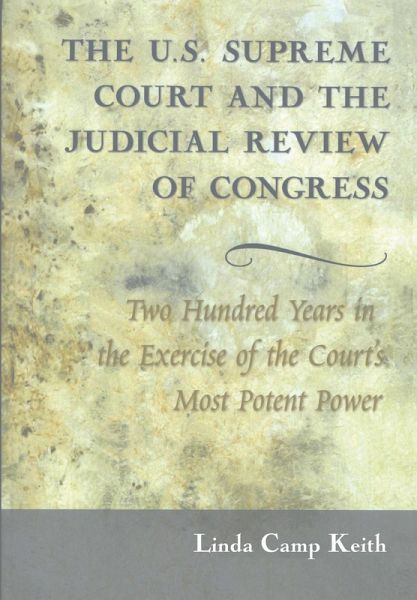
The U.S. Supreme Court and the Judicial Review of Congress
Two Hundred Years in the Exercise of the Court's Most Potent Power
Versandkostenfrei!
Versandfertig in 6-10 Tagen
40,50 €
inkl. MwSt.

PAYBACK Punkte
0 °P sammeln!
This book examines, from a behavioral perspective, the U.S. Supreme Court's exercise of the power of judicial review over Congress across two hundred years of the Court's history, testing the major competing theories in political science - the attitudinal model and the strategic approach - through systematic empirical analysis. Exploring the major trends in the Court's use of this power over time, the book examines a broad range of questions concerning the countermajoritarian nature of this power, and provides an analysis of each of the individual justices' behavior along several dimensions of...
This book examines, from a behavioral perspective, the U.S. Supreme Court's exercise of the power of judicial review over Congress across two hundred years of the Court's history, testing the major competing theories in political science - the attitudinal model and the strategic approach - through systematic empirical analysis. Exploring the major trends in the Court's use of this power over time, the book examines a broad range of questions concerning the countermajoritarian nature of this power, and provides an analysis of each of the individual justices' behavior along several dimensions of the power, such as the use of judicial review to protect minority rights against majority intrusion. The book concludes that the Court has shown a high level of deference to Congress, with notable historic highs and lows, and generally that the exercise of the power has been less countermajoritarian than is usually assumed. Its analyses find the strongest level of support for the attitudinal approach to judicial decision making, but also concludes that strategic concerns cannot be dismissed, especially for the more recent Courts.












